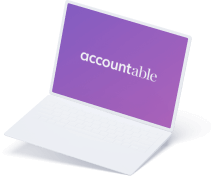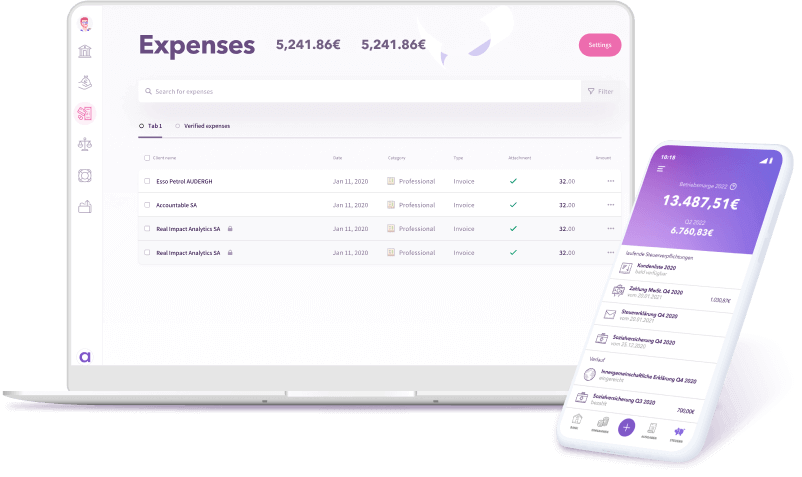
Freelancing in Germany? Put these dates in your calendar!
Read in 4 minutes
While being self-employed comes with a tonne of perks like the flexibility to work anywhere, manage your own schedule, and choose and refuse projects as you wish, it also comes with a lot of responsibility. Aside from juggling client deadlines, there are a number of key tax deadlines that you need to keep in mind if you want to avoid getting snowed under by an avalanche of confusing letters and late fees from the tax office.
When freelancing in Germany, it’s key to have an understanding of what you need to report, how much you need to pay, and when. Nobody likes paying a tax bill that they don’t understand, so bookmark this page and get familiar with the topics and dates below and you’ll be on your way to minimising the stress and becoming a successful, self-employed professional in Germany.
Registering as a freelancer in Germany
Assuming you’re already permitted to live and work in Germany, the first task you need to tick off is registering as a freelancer with your local tax office and receiving your freelance tax number. Note that registering as a freelancer is different to registering as living in Germany. While there’s no set deadline or timeframe with which you need to do this, you won’t be able to properly invoice your clients without this tax number, and you won’t be able to file your tax return or claim any expenses.
To register as a freelancer, you need to complete and submit a tax number registration form, or “Fragebogen zur steuerlichen Erfassung” to your local tax office.
Filing and paying taxes as a freelancer in Germany
The tax period
The annual tax period and financial year in Germany is from January 1 to December 31st each year.
VAT reporting and payment
If your income from freelancing is above 22,000€ a year (or if you’ve estimated that it will be) it is subject to VAT (Value Added Tax) or “Umsatzsteuer” and you must charge and receive VAT on the goods and services that you provide and invoice for.
You’re also obliged to report the amount of VAT that you receive and pay this amount on to the tax office. On the plus side, you can also claim VAT on expenses you’ve paid as part of your freelance operations.
Reporting VAT
The first step is the advanced reporting of your VAT income, or “Umsatzsteuervoranmeldung”. Some freelancers are required to do this monthly, others must do it quarterly, and in some cases, it’s only required annually. If you’re unclear, it’s best to call or drop into your local tax office to check. Contrary to their reputation, Finanzamt workers are often friendly and helpful (especially if you speak German!).
In order to avoid fines for late reporting, you must file your VAT earnings report by the 10th day of the month that follows the reporting period. For example, if you report your VAT quarterly, your first deadline for the year will be April 10th, for the period of January 1st through to March 31st.
How and when: Umsatzsteuervoranmeldung for freelancers 2020
Nil VAT return
In some cases, you won’t be obliged to charge VAT on the work that you do. If you haven’t had to charge any VAT for a particular period, you still need to declare your VAT earnings of nil, and the deadline for reporting is the same.
Annual VAT summary
In addition to the advanced reporting of VAT, you need to file an annual VAT summary that confirms the total amount of VAT that you charged throughout the tax year. This is due by July 31st of the following year.
Paying VAT
You must also pay the VAT amount that you’ve reported directly to the tax office. Payment of VAT is due on the same day of reporting, ie. the 10th day of the month following the reporting period.
Income tax return
Just like anybody else who generates an income through working in Germany, as a freelancer you must file an income tax return or “Einkommensteuererklärung” each year – as long as you’ve earned over 9.744€ (as of 2021). Your income tax return is due by July 31st of the following year.
Advanced payments
In some cases, the tax office will request that you make income tax payments in advance. It may take one or two years of freelancing before the tax office makes a calculation of how much tax you’re likely to owe and asks you to pay in advance, and these payments are usually made quarterly.
While it may not sound like much fun, paying taxes in advance can be much easier for your cash flow than to be hit with one big lump sum after you submit your annual income tax return.
If you’re required to make quarterly advanced payments, keep these deadlines in your calendar for reference:
- 10th March: advance payment for the 1st quarter
- 10th June: advance payment for the 2nd quarter
- 10th September: advance payment for the 3rd quarter
- 10th December: advance payment for the 4th quarter
Income tax projections aren’t usually accurate, and will be reconciled when you file your annual income tax return. If you’ve overpaid in your quarterly payments, the balance will be refunded to you. Similarly, if you’ve earnt a lot more than what was anticipated, you’re likely to receive a bill to cover the difference.
Conclusion
We hope that this blog post removes some of the confusion about which important dates for filing reports and submitting forms as a freelancer in Germany. While these dates apply to most freelancers, it can differ depending on your individual situation, so make sure to ask your local tax office if you’re unsure.
7 mistakes to avoid when starting out as a Freiberufler in Berlin
💡 Tip from Accountable: It’s easy to feel inundated with dates and deadlines, but you don’t have to do it alone. Download Accountable now and access reminders and generate tax reports. Our team is available to help, and can even redirect you to our partner accountants.
Did you find what you were looking for?
Happy to hear!
Stay in the know! Leave your email to get notified about updates and our latest tips for freelancers like you.
We’re sorry to hear that.
Can you specify why this article wasn’t helpful for you?
Thank you for your response. 💜
We value your feedback and will use it to optimise our content.










